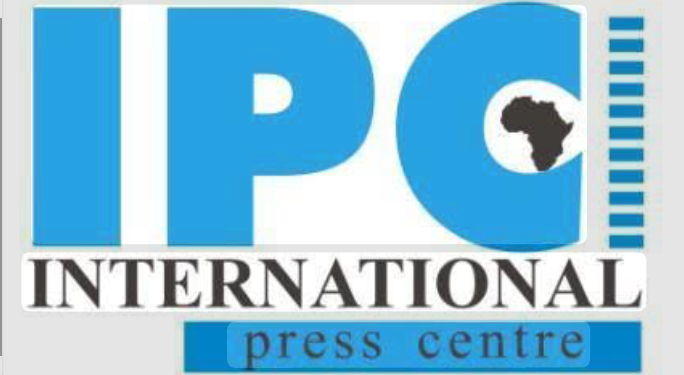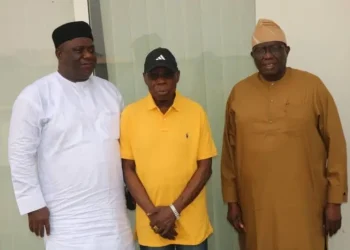In its continued efforts to deepen Nigeria’s democracy through credible elections, the International Press Centre (IPC) has launched its report on the media-led nation-wide dialogue series on rebuilding trust in Nigeria’s electoral process, electoral institutions and elections.
The event which took place in Abuja on Monday also witnessed the signing of a memorandum of understanding (MOU) with the National Association of Women Journalist (NAWOJ) and the Guild of Corporate Online Publishers (GOCOP) on better reporting of election issues.
The Report launch, according to the IPC represents a synthesis of IPC’s media-led multi-stakeholder dialogues conducted across Nigeria’s six geo-political zones between 2023 and 2025.
The engagements were convened under Component 4: Support to Media of the European Union Support to Democratic Governance in Nigeria (EU-SDGN II) project of which IPC is the lead partner.
The dialogues provided a platform for diverse stakeholders to exchange views and build consensus on strategies to restore public confidence in electoral institutions and processes, the Council said.
In her welcome remarks, Stella Nwofia, Programme Manager of IPC described the event as important public forum—an occasion marked by both reflection and resolve.
“We gather not only to launch a report but to reaffirm our shared commitment to rebuilding trust in Nigeria’s electoral process, institutions, and elections.
“Recent research and stakeholder engagements have consistently highlighted the pivotal role of the media in shaping public trust in democratic institutions.
“In Nigeria, where electoral processes are often met with skepticism, the media serves as both a mirror and a mediator—reflecting public sentiment while also helping to shape it,” She asserted.
Nwofia also said that “studies have shown that trust in electoral institutions is closely linked to the quality, consistency, and credibility of information disseminated before, during, and after elections.
“The media, therefore, must not only report events but also interrogate narratives, amplify marginalized voices, and hold all actors—political parties, security agencies, electoral bodies, and civil society—accountable.
“While Nigeria’s electoral system has seen notable advancements—including the adoption of digital tools and expanded civic education—recent elections have revealed persistent structural and perceptual challenges. The 2023 general elections, in particular, drew widespread scrutiny from both domestic and international observers,” She also said.
The Programme Manager went on to say that: “This forum reflects IPC’s concern that scrutiny is often disproportionately focused on INEC, while other key actors—government institutions, political parties, candidates, and security agencies—escape the spotlight.
“Today, we must ask ourselves: Have we done enough to hold all stakeholders accountable for their roles in the electoral process?
“And equally important, have we, as media and civil society organisations, upheld the same standards of transparency, responsibility, and public trust in the discharge of our duties?
Presenting the Report entitled “Safeguarding Electoral Integrity for Democratic Consolidation”, Mr Lanre Arogundade, Executive Director of IPC said that “when elections are perceived as lacking credibility due to irregularities, manipulations, or insufficient transparency, public trust is undermined.
“As skepticism regarding electoral integrity grows, democratic institutions and Electoral management bodies (EMBs) may experience diminished legitimacy, which can gradually weaken the foundations of democracy.”









